The INFJ and the 9 Enneagram Types
Today we’re going to take a look at the INFJ through the eyes of the enneagram system. Up until now, we’ve looked at the INFJ personality type through the lens of the Myers-Briggs system. The MBTI® explains how your mind works and processes information. For example, as an INFJ you process abstract information over concrete information (that’s what makes you an N!). You prioritize ethics/meaning/worth over pros/cons and logic. You get energy from the inner world of thoughts and ideas (introversion) and have an organized, planned, and decided way of responding to your environment (Judging).
But does this mean that all INFJs are the same?

Absolutely not! Even though all INFJs have similar mental wiring, this doesn’t mean they all think about things exactly the same way. Some INFJs are workaholic perfectionists, while others are melancholy daydreamers. Which type of INFJ you are depends largely on your enneagram type. The enneagram maps out nine potential types and their complex relationships. These types explain our core drives, our basic fears, desires, weaknesses, and strengths. You can find out more about the enneagram here.
Not sure what your enneagram type is? Take our new personality questionnaire here!
Table of contents
- The Nine Types of INFJs – Which One Are You?
- Enneagram Type One – The INFJ Perfectionist
- Enneagram Type Two – The INFJ Helper
- Enneagram Type Three – The INFJ Achiever
- Enneagram Type Four – The INFJ Individualist
- Enneagram Type Five – The INFJ Investigator
- Enneagram Type Six – The INFJ Loyalist
- Enneagram Type Seven – The INFJ Enthusiast
- Enneagram Type Eight – The INFJ Challenger
- Enneagram Type Nine – The INFJ Peacemaker
Estimated reading time: 20 minutes

Find Out More:
This article will only scratch the surface of the enneagram and how these different types can show up in your life. There is SO much more to discover! Each enneagram type, for example, has an instinct (social, sexual, or self-preservation) that can alter how they show up. Each enneagram type has a wing that will further alter how the type shows up. To find out more about your enneagram type, check out my favorite books on the enneagram below:
The Complete Enneagram: 27 Paths to Greater Self-Knowledge
The Road Back to You: An Enneagram Journey for Self-Discovery
The links to the books above are affiliate links. If you purchase any of these books I get a small percentage that I can use to continue running this site.
Not sure what your personality type is? Take our new personality questionnaire!
The Nine Types of INFJs – Which One Are You?
Enneagram Type One – The INFJ Perfectionist
Basic Fear: Being corrupt, “bad,” or defective.
Basic Desire: To be good, pure, and to have integrity.
INFJ Ones feel it is their duty to improve the world and overcome moral adversity. Thorough and hard-working, they often feel plagued by a sense of not being “good enough.” They have an inner critic inside that seems to point out not only their own flaws but the mistakes and shortcomings of others. In childhood, they often felt that they had to justify their existence, or that they had to take on a lot of responsibility at a young age. More than many other types, Ones felt like they had to grow up quickly, and they often felt like it was their job to become hyper-responsible and reasonable rather than enjoy the whimsy and carefree nature of childhood. These INFJs will seem more pragmatic and grounded than your typical INFJ. This is because practicality and common-sense are highly valued by the INFJ One.
Ones tend to feel a constant sense of personal obligation for the world around them. They find it next to impossible to relax because of the ever-mounting to-do list in their mind. They often feel that others will fail to do a thorough job and so they must do everything themselves. In many cases, they see other people as lazy or under-motivated. As Ones grow healthier they are able to let go of the belief that everything must be perfect – or that they even know what “perfect” is. They become more relaxed, joyful, accepting, and moderate.
Because Ones are in the anger/instinct triad of the enneagram, they tend to experience a lot of anger. However, they may not totally identify their emotions as such. They tend to express anger sideways by being critical towards themselves and others. Rather than blowing up and kicking things around, they criticize themselves, judge themselves or others, bite their nails, grind their teeth, etc,…
INFJ Ones have a strong vision for their lives and a determination to fulfill their purpose. They often feel that frivolity and leisure activities will distract them from their purpose. They often wind up burned out because they deny their need for introversion and solitude. It’s important for INFJ Ones to realize that rest, relaxation, and unstructured time will help them to reach their purpose more effectively. Burned-out INFJs accomplish far less than refreshed, focused, clear-thinking INFJs.
Unhealthy Ones Can Be: Judgmental, Self-Righteous, Bitter, Overworked, Defensive, and Prone to Black-and-White Thinking. At this stage, Ones feel that they will never be “good enough.”
Average Ones Can Be: Serious, Driven, Purposeful, Organized, Punctual, Irritable, Tense, Opinionated, Sarcastic, Hard-Working, Responsible, Dedicated.
Healthy Ones Can Be: Purposeful, Honest, Sensible, Moderate, Objective, Accepting, Hopeful, Wise, Discerning, Joyful, Humble, Playful.
Find Out More: The INFJ Enneagram Type One
Enneagram Type Two – The INFJ Helper
Basic Fear: Of being worthless, unloved, or unwanted.
Basic Desire: To know they are loved.
These INFJs tend to appear more jovial and extroverted than some other INFJs. They are very people-oriented and lean heavily on their secondary function: Extraverted Feeling (Fe). Typically warm and supportive, these INFJs believe it is their duty to be generous, to put others first, and make others happy. Intensely compassionate, they are nearly always ready to lend a hand and help someone in need. Unfortunately, many INFJ Twos experience phases of extreme burn-out and exhaustion. They tend to give so much energy to others that they fail to meet their own needs for alone time and quiet reflection. Rather than relying as much on intuition as they typically should, they often over-rely on Extraverted Feeling (Fe). Always feeling like they must say “yes,” they struggle to take time for themselves. It’s important for them to learn the importance of setting boundaries and prioritizing alone time.
In childhood, Twos were often taught to put other people’s needs ahead of their own. There was a feeling that they had to earn a place in other people’s affections or repress their own needs to attend to others. They embraced the role of a selfless friend, nurturer, and people-pleaser. In short, they grew up feeling like they must sacrifice themselves in order to earn love.
Because Twos are in the Shame/Heart triad of the enneagram, they struggle with underlying feelings of worthlessness. They worry that if they stop being generous and supportive that they will have nothing worthwhile to offer the world. On the flip side, they can also experience pride because they feel like they are so needed by others. However, that sense of pride is very fickle and there tends to be underlying feelings of shame, grief and hurt that are left unprocessed. As Twos become healthier, they learn to process their shame. They learn that they are allowed to take care of themselves and their own feelings and needs. With this understanding, they become more joyful, humble, and relaxed. They no longer feel like they have to earn love because they know they are enough as they are. Intuition takes a more prominent place in their lives and they become more insightful, independent, and imaginative.
Unhealthy Twos Can Be: Victim-minded, Meddling, Overbearing, People-Pleasing, Manipulative, Over-worked, Angry, Hurt, Exhausted, and/or Desperate for love.
Average Twos Can Be: Selfless, Proud, Complimentary, Supportive, Nurturing, Helpful, Flattering, Insecure, Responsible, Possessive, Well-Intentioned.
Healthy Twos Can Be: Generous, Supportive, Encouraging, Emotionally Expressive, Joyful, Humble, Imaginative, Creative, Insightful. They prioritize themselves rather than always putting others first.
Find out more about Enneagram Twos: 7 Struggles of the Enneagram 2
Enneagram Type Three – The INFJ Achiever
Basic Fear: Of being worthless without their achievements.
Basic Desire: To feel desired, worthwhile, and/or accepted.
Adaptable and driven, INFJ Threes tend to be more action-oriented than many other INFJs. They strive for success, accomplishment, and excellence. They want to make their visions realities and are extremely motivated to put energy into their dreams and ambitions. Whether they’re distinguishing themselves in the academic world or winning awards for their creative efforts, these INFJs are determined not to be “nobodies.” They use their intuition to strategically move through life and generate the most success. They use their feeling side to “market” themselves or understand what people need and want.
In childhood, Threes often believed that they weren’t valued for themselves. They believed that only by doing certain things extremely well could they earn love or worth. Any kind of validation would lift their spirits, and they found themselves doing tasks and achieving benchmarks so that they could continue receiving that validation. Threes can look materialistic on the outside because they tend to care about appearances, proper dress, a nice house, etc,. – but these things aren’t what drive them so much as what they symbolize. They worry that without certain markers of success they will be worthless, empty, or a failure.
On one hand, Threes can be helpful, progressive, innovative, and motivated. On the other hand, they can be competitive, egocentric, materialistic, and proud. As Threes become healthy they learn to accept themselves for their true identity rather than how they “package” themselves. They become more self-accepting, genuine, and benevolent. They stop worrying about what society says “looks good,” and embrace their uniqueness.
Unhealthy Threes Can Be: Show-Offs, Depressed, Empty, Angry, Attention-Seeking, Confused, Vain, Deceitful, Overly-Competitive, Burned-Out, Afraid of Intimacy.
Average Threes Can Be: Over-Achievers, Ambitious, Self-Doubting, Self-Promoting, Competitive, Hard-Working, Arrogant, Creative, Visionary, Determined, Restless.
Healthy Threes Can Be: Confident, inspiring, creative, genuine, self-accepting, benevolent, visionary, imaginative, insightful, and/or empathetic. These threes explore their true identity and discover what they actually want rather than what society labels as “success.”
Read This Next: The INFJ Workaholic
Enneagram Type Four – The INFJ Individualist
Basic Fear: Being insignificant or without identity
Basic Desire: To find their significance and unique identity.
These INFJs will typically appear much more introverted than most. They are very introspective, imaginative, and deep. Above all, they feel a strong desire to find their unique vision and identity. Once they find that they believe that they can mold their personality around it. These INFJs are very familiar with their darker nature – they want to know themselves on a deep and intimate level – scars and all. They aren’t afraid to talk about deep, depressing, or unusual subjects – in fact, the more revealing and authentic the conversation the better. Often feeling like outsiders, these INFJs long for connection – they want someone to join them in their imaginative, nuanced world – but they often feel that this validation is unattainable. They tend to feel misunderstood, while simultaneously getting a sense of satisfaction from being mysterious.
In childhood, Fours often felt like misfits in their families. They may even have wondered if they were adopted because they felt so unlike everyone else. Because they felt so out-of-place in their surroundings, they weren’t able to see their gifts or abilities in anyone else. They often wondered if there was something wrong with them – thus they embarked on a lifelong “quest for self” in order to understand where they fit in. Because their identity wasn’t mirrored in any of their family members they felt an incessant need to find that identity somewhere. They often have fantasies of being “seen” by a rescuer or someone who will finally understand them and appreciate who they truly are.
Fours are in the Shame/Heart triad of the enneagram. While Twos try to hide their shame by earning love, and Threes try to erase their shame through achievement, Fours actually delve into their shame. They find it nearly impossible to avoid their feelings – in fact, they may purposefully stir up feelings that are familiar to them, even if they are agonizing or painful. Fours want intensity of feeling – because they feel that it will draw them closer to their true identity.
Unhealthy Fours Can Be: Self-destructive, depressed, self-loathing, self-sabotaging, wasteful, apathetic, fatigued, listless, and/or lost in fantasies.
Average Fours Can Be: Imaginative, self-conscious, melancholy, envious, introspective, aesthetically-motivated, self-absorbed, sensitive, empathetic, and/or visionary.
Healthy Fours Can Be: Creative, eloquent, insightful, imaginative, authentic, honest, forgiving, revealing, empathic, accepting, and grateful. They don’t feel a need to be different – they know that there is only one of them and they are good enough as they are.
Read This Next: 3 Weird and Wonderful Secrets About the INFJ
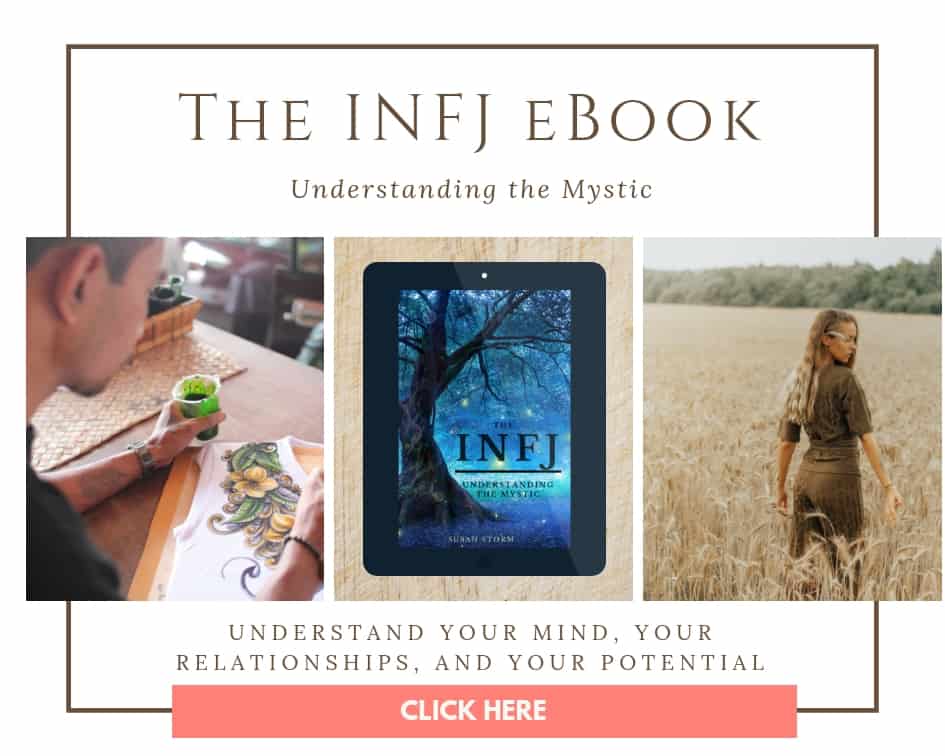
Enneagram Type Five – The INFJ Investigator
Basic Fear: Being useless, helpless, incompetent, overwhelmed.
Basic Desire: To be competent and capable.
These INFJs are very in touch with the intuition and thinking sides of their personality. They want to achieve mastery in something, to know how everything works, ask questions, and delve into theories and data. They appear far more introverted than many of the other INFJs listed here. Being around people overwhelms them and they tend to “hoard” personal space as a way of coping. More than anything, these types want to find out the truth of things for themselves. Because of this they spend a lot of time contemplating, observing, synthesizing information, and internalizing knowledge. They want to be someone with creative ideas and unique insight into the world. However, because these INFJs don’t get out into the world very much, they can risk having one-sided insights that lack real-world data. They can get into Ni-Ti “loops” where they become withdrawn, isolated, and wrapped up in endless analysis without any real-world experience to draw from.
In childhood, Fives often felt that they weren’t safe in some way or another. This safety may not have been physical, it may have been that they felt intruded upon or overwhelmed by people in their families. Fives often feel engulfed by people and are extremely protective of their personal space. Because of this they retreat into their mind or their room where they don’t have to worry about their energy stores being depleted. From here they occupy their minds and imaginations with all kinds of hobbies, books, and skills. They want to find something unique that they can be experts in. They believe that if only they can know enough or have enough mastery then they can finally go out into the world. Average to unhealthy Fives have nagging feelings of inability – that they just can’t do things as well as others. People who know them may not realize this because they keep their true feelings so well-hidden.
Fives are in the fear/head triad of the enneagram. They often try to face their fears in their own solitude. In the peace of their own room they might draw pictures of scary monsters that terrify them or read stories about horrible events that cause them anxiety. They tend to have an attraction to the “dark side” of life and to fully immersing themselves in the things that scare them. It’s important for INFJ Fives to reach out to others and to become comfortable sharing their inner world. Becoming isolated can get Fives lost in a feeling of emptiness and meaninglessness. INFJs need to use their feeling side to be healthy and balanced.
Unhealthy Fives Can Be: Escapist, eccentric, insomniacs, stuck in analysis-paralysis, afraid, isolative, secretive, argumentative, under-nourished, and/or removed from their feelings.
Average Fives Can Be: Insecure, high-strung, cerebral, secretive, skeptical, imaginative, resentful, misunderstood, private, pre-occupied, conceptual, observant, and/or intelligent.
Healthy Fives Can Be: Competent, strong, curious, original, inventive, artistic, independent, clear-minded, profound, engaged, grounded, compassionate, perceptive, and/or productive.
Enneagram Type Six – The INFJ Loyalist
Basic Fear: Of being abandoned or without support.
Basic Desire: To find security and support.
The INFJ Six has far-reaching visions of the future and all the catastrophes they believe will happen. They might lie awake at night worrying about global warming or whether or not there is indeed an afterlife. Their intuition is strong, and they use it to foresee implications, risks, and existential possibilities. These types are called the loyalists because they are deeply loyal to their friends and beliefs – even if that belief is that everything should be questioned.
Average Sixes fear that they do not have the capabilities to handle life’s challenges alone and so they look for beliefs, structures, and supports outside themselves for a sense of stability. For some Sixes, that support system is found in a church or religion – for another Six it might be the defiance of church or religion. Sixes often feel like they’re struggling to grasp anything that is secure or certain. They are so filled with questions and skepticisms that firm ground seems perpetually out-of-reach. They believe that if they foresee every possible bad thing that could happen then they can prepare themselves and their loved ones. The only problem is that more and more possibilities present themselves and they spend a great deal of time preparing and worrying over the future and struggling to enjoy the present.
In childhood, Sixes often felt that their parents were inadequate, unsupportive, or distracted. Usually during the separation phase of childhood they found themselves looking for guidance but feeling that the strong parental figure was absent, unavailable, distant, or weak. This led them to a lifetime of ambivalence and anxiety about trust, closeness, and openness. Sixes tend to feel a desire for closeness and intimacy, but a simultaneous desire to defend themselves against it. They might seem outwardly obedient and docile, yet inwardly harbor cynicism, skepticism, and distrust.
Unhealthy Sixes Can Be: Plagued by guilt, self-punishing, self-destructive, paranoid, insecure, delusional, obsessed with fears, panicky, helpless, and depressed.
Average Sixes Can Be: Supportive, authority-seeking, authority-questioning, anxious, pessimistic, cautious, impulsive, indecisive, skeptical, cynical, dutiful, and/or hard-working.
Healthy Sixes Can Be: Responsible, committed, practical, well-disciplined, insightful, visionary, friendly, trustworthy, hard-working, grounded, serene, and brave.
Read This Next: 10 Intuition Hacks for INFJs and INTJs
Enneagram Type Seven – The INFJ Enthusiast
Basic Fear: Of being deprived and in pain.
Basic Desire: To be satisfied, happy, and to have their needs fulfilled.
A sense of adventure is close to this INFJ’s heart. Sevens are all about possibilities, opportunity, fun, and new experiences. These INFJs may seem less introverted than the typical INFJ. They’re usually more in touch with their inferior sensing function than the typical INFJ as well. That’s because Sevens adore physical experience – whether that’s getting a massage, skydiving, playing an instrument, or petting a cute puppy. They look for stimulation and try to plan entertaining, stimulating events for themselves. Using their intuition, these INFJs quickly foresee events, generate ideas, and synthesize information and likely implications. They develop grand visions for the future and can’t wait to see them realized. Mentally quick and agile, these INFJs may initially seem flawless because of their enthusiasm and fun-loving nature. However, they can become so focused on staying busy and finding enjoyment that they can become scattered, hedonistic, and indulgent. It’s important for INFJs to reflect, be still, and focus on their inner voice and vision. These INFJs may struggle to do that because when they’re still and quiet they can find themselves looking for mental distractions. They are afraid of facing their inner anxieties, grievances, and pain.
In childhood, Sevens often felt disconnected from the mother figure in their life. This could have been unintentional or intentional – for example, maybe a new sibling came along or their mother just didn’t understand them very well. Either way, they felt cut off from their maternal nurturing figure in some way. As a result, they learned to nurture themselves – to take care of their own needs. They usually find this need met in toys, games, distractions, and playmates. Even into adulthood the Seven is looking for objects and distractions to help them repress underlying feelings of hurt, fear, and separation.
Because Sevens are part of the Head/Fear triad, they have underlying issues of fear and anxiety. Unlike the Six, who tries to deal with their anxiety through hyper-vigilance, Sevens repress their anxiety through seeking fun, adventure, possibilities, and re-framing negatives into positives. INFJ Sevens experience the best growth when they can learn to be still with their thoughts, meditate, and rest with their feelings.
Unhealthy Sevens Can Be: Escapists, Impulsive, Irresponsible, Hedonistic, Joyless, Reckless, Scattered, Unstable, Overwhelmed, Paralyzed.
Average Sevens Can Be: Impatient, Imaginative, Self-Centered, Excessive, Enthusiastic, Creative, Distracted, Adventurous, Materialistic, Restless, Skilled at Multi-Tasking.
Healthy Sevens Can Be: Grounded, Bold, Realistic, Charismatic, Visionary, Appreciative, Joyful, Satisfied, Helpful, Profound.
Enneagram Type Eight – The INFJ Challenger
Basic Fear: Being controlled or violated by others.
Basic Desire: To determine their own course in life. To protect themselves.
INFJ Eights want to stand alone, to have power over their lives, and to achieve their goals. They are extremely driven, resourceful, and propelled towards their vision and purpose. They don’t want to feel indebted to anyone, emotionally vulnerable, or in any way dependent. Autonomy and freedom are vital to their happiness; the only problem is that they may defy being vulnerable so much that they miss out on fulfilling relationships in the process. These types crave a sense of intensity in their lives. Whether they’re race-car driving or starting their own business, they enjoy proving naysayers wrong and testing their abilities and strengths.
In childhood, Eights felt that they had to grow up quickly. Early on they felt that they were in some way responsible for the welfare of their family. There was no time or safe space for vulnerability – they had to be strong. Survival issues were at the forefront of their mind. Being gentle, giving, emotionally open – these typical INFJ characteristics were probably repressed because it didn’t feel safe. In some way they felt there was a risk of rejection, betrayal, or pain if they let their guard down. They developed a tough, independent, hardened demeanor as a way of dealing with their pain.
Eights are in the Gut/Instinct triad of the Enneagram. This means that they have underlying issues with anger. While Nines avoid their anger and Ones repress it, Eights express their anger. They like straight-talk and directness and tend to be assertive themselves. When threatened or controlled they can become explosive and intimidating. They feel very defiant of any institution that tries to control them – and they may make life choices simply to rebel against that institution. Whether it’s dropping out of school because the teachers were too controlling, marrying someone a parent doesn’t like, or driving faster than the speed limit on a bad day.
Unhealthy Eights Can Be: Destructive, Vengeful, High-Tempered, Rejecting, Private, Hardened, Authoritative, Bossy, and/or Confrontational.
Average Eights Can Be: Resourceful, Businesslike, Competitive, Boastful, Willful, Proud, Bad-tempered, Hard-Working, Independent, Visionary, and/or Determined.
Healthy Eights Can Be: Courageous, Heroic, Forgiving, Energetic, Independent, Action-Oriented, Resourceful, Direct, Protective, Generous, Inspiring, Strategic, Decisive, Self-Confident, and/or Authentic.
Enneagram Type Nine – The INFJ Peacemaker
Basic Fear: Of loss, separation, or fragmentation.
Basic Desire: To have inner stability, harmony, and peace of mind.
INFJ Nines have the potential to be some of the greatest spiritual seekers of their time. Visionary, imaginative, and insightful, their strengths come naturally to INFJs. They are typically very in touch with their intuition and feeling functions – foreseeing possible conflicts, sensing emotional turmoil and pain in others, and listening with insight and understanding. The struggle for INFJ Nines is that they tend to ignore the disturbing parts of life in order to live in peace and comfort. This doesn’t mean that they turn a blind eye to suffering! It does mean that in the midst of uncomfortable situations they may “numb out” or run away from paradoxes in order to find a painless solution to their problems. They tend to adopt proverbs, sayings, or platitudes that comfort them during times when they may need to take action, stand up for themselves, or even express their anger.
In childhood, Nines learned to cope with pain by dissociating from threatening and traumatic events in their environment. This doesn’t mean that all Nines had traumatic childhoods, but it does mean that they internalized the belief that if they were undemanding and low-maintenance they would be safe AND calm down their families. They felt that if they asserted themselves and made their inner souls visible that they would create more problems. They would often stay in the background, repressing their anger, their will, and desires.
Because Nines are in the Gut/Anger triad of the Enneagram they have underlying issues with Anger. However, unlike the Eights, Nines don’t express their anger outright. They tend to repress it, feeling that if they expressed it they might fragment or destroy everything inside them. Anger feels dangerous to the Nine, so instead they repress it. They manage stress by downplaying their own will and choices, opting many times to do what other people want to maintain harmony and peace. However, underneath their pleasant demeanor they may have a storm brewing – anger that has been suppressed and suffocated for days, weeks, or even years.
Because INFJs naturally crave harmony and are naturally aware of the emotions and needs of others, it’s very common for INFJs to be of this enneatype. At an early age, INFJs may have realized the way to creating outer harmony was to disappear. This may have created patterns in them that led to them being a 9. One of the greatest pathways to growth for Nines is learning to express their will and their anger in healthy ways. They need to learn not to numb out, but to inhabit themselves.
Unhealthy Nines Can Be: Withdrawn, Unrealistic, Dissociated, Disoriented, Numb, Helpless, Repressed, Neglectful, Lazy, Ineffectual, Depressed, and/or Listless.
Average Nines Can Be: Agreeable, Kind, Routine-Oriented, Amicable, Deflecting, Resigned, Appeasing, Complacent, Disengaged, Compassionate, Dismissive of Pain.
Healthy Nines Can Be: Patient, Level-Headed, Imaginative, Inspiring, Self-Possessed, Serene, Present, Dynamic, Easy-Going, Kind, Patient, Peaceful, Comforting, and/or Spiritual.
Read This Next: The Powerful Imagination of INFPs and INFJs
What Are Your Thoughts?
Which type of INFJ are you? Do you have any insights for fellow INFJs of your type? Let us know in the comments! Find out more about the INFJ type in my eBook, The INFJ – Understanding the Mystic.

Get Your Free INFJ eBook
As a thank you for subscribing to my newsletter I will send you this free eBook PACKED with self-care tips, creativity hacks, and more! You'll also get a 3-day email course for understanding your personality type better!


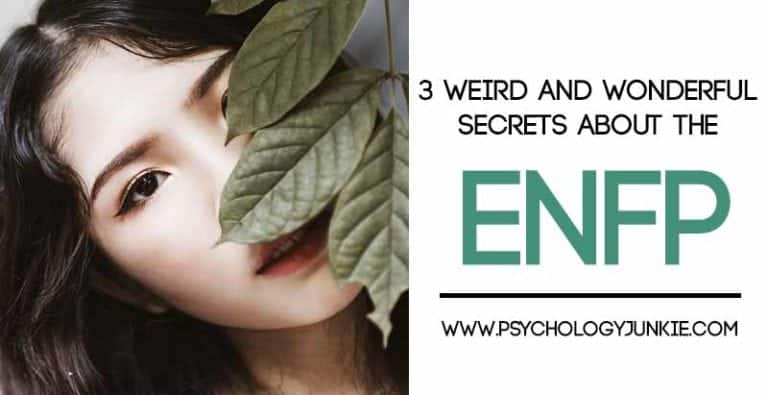
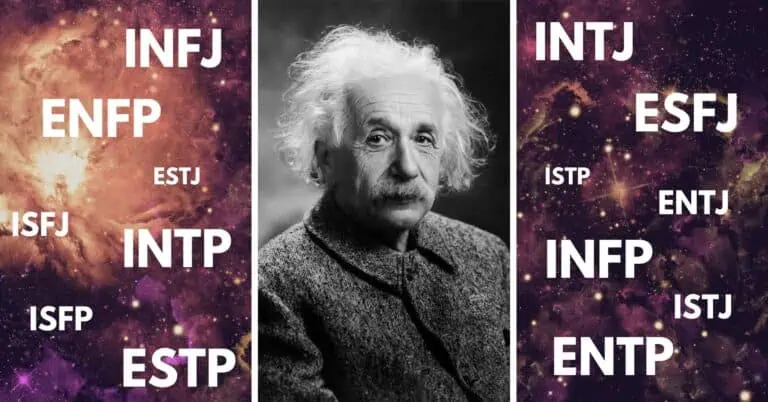
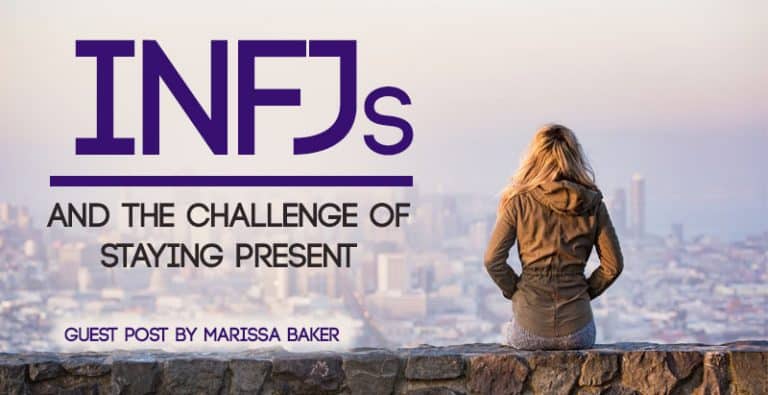
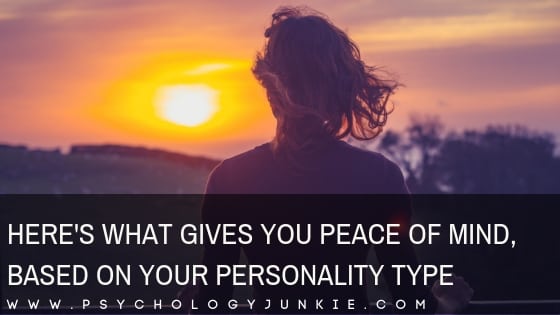
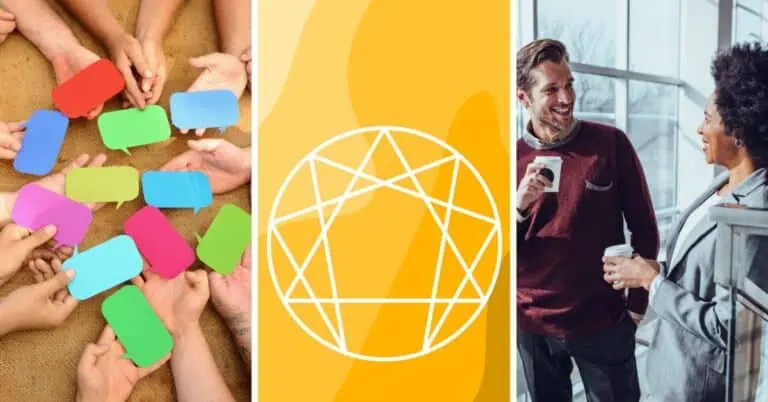
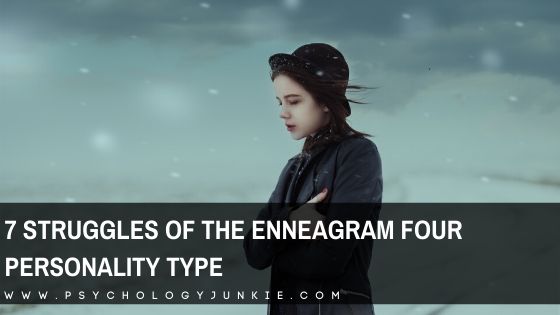
Strong 4 with some 7 and 9.
I fall into 3 categories, helper, loyalist, and peacemaker. It was an eye opening read. Thank you very much. But I wonder can I actually be all 3? Would you please answer me back? It would be much appreciated.
I am to some extent 1 , 8 ,9 and 6 is this okay
I knew it !!! There are more then just an INFJ-A/T.
I would tell my fiance all the time , we are so alike yet so different. You just have to realize how different.
That was incredibly perfect, bravado! I got nailed right down the middle as an enneagram Eight The Challenger. Do I like it? Well, it is what it is. I was simply built this way by God, science or in my soul for whatever it is. Thank you so much and it kind’ve helps me understand myself a little better.
I read each of the nine sub types of INFJ and identified with each of them. I struggled to narrow down which best described me to one option, finding three that equally would describe me over the other six, whilst still identifying with the remaining six. Is this normal?
Haha, me too!
I’m a very strong 7 & 9
Now how do I help myself?
I’m not sure but I’m an INFJ who identified with all nine of them to a certain extent as well.
Susan, how do you deal with the wing part of the Enneagram world? My top two are so close to each other and both, to some degree fit…..but in other ways, I’m personally not convinced….at least not yet.
Wow
After reading, I realised I was all these when I was diagnosed with GAD & Depression. I had all nine of the fears and I was an unhealthy in all nine aspects. It was truly the darkest time I’ve been and yet, I survived and proceeding healthily. 🙂
Love this! Very insightful. I think I am a bit of both a 4 and a 9, possibly gravitating more toward a 9.
I’m a 9,5,3 or 5,9,3 not really sure of the order of my tri type. There have been times when the 9 was much more present and times when the 5/3 was much more present.
Very interesting arrival btw. Thank you!
All pieces of the same puzzle. Sure, individuals relate more to some aspects than others; but I think I can relate to most of the “types” described here. I assume (but might be entirely INCORRECT) that alot of us connect with most of these feelings? I really don’t know. I can’t even make sense out of my own mind, so how can I even begin to fathom the complexities of yours’? ????
OMG, probably an INFJ 5, but possibly an INFJ 9. This was a very illuminating article. Thank you!
Yay another INFJ article! (no sarcasm intended)
I think we’re all a mix of several types we can’t just be one. The research done probably didn’t cover many mix types and just basically narrowed us down to a certain group. 2,3,4,5 and 6 here a little bit of everything except the perfectionist.
I loved this post , found it to be very informative and loved the format. I hold to the tri-type theory. I test out as 5/4/8 and the article you post on my tri-type are pretty spot on.
This is interesting, I’ve always waited for an MBTI and Enneagram mix. Would love to see the rest!
I don’t feel like I fit into any one category, and every one of them fit me and don’t fit me. It is like you are this way (fits) and this is why (doesn’t fit) and here’s how you react (fits but not all the way). I feel like a walking contradiction.
Yes very informative and well formatted. I hold to the tri-type and identify with 5/4/8. I thank you for allowing me to be a part of your community.
Seems like 4$8 ring close to me. I’m 64 and have studied for years. My life has the addition of ADHD and post concussion syndrome. So there you have it.
Could you also do one article like this for INTPs? Thank you so much! ????
I hope to! I’ve got so many articles on my “To-Write” list and that is one of them 🙂
Definately a 4 type with a strong 5 and 3 wing. But I can relate a lot to all of them somewhat especially 3,4,5 and 6.
I’m a mix of 1,5, and 8 and I have few characteristics from the other types too what do u say Susan?
I love this! I would recommend doing this article of the all 16 types! ????
5 years back I was type 1 : 100% sure. Just matches every single line. But in all these years I have changed and now I find myself somewhere being a mixture of type 3 and type 4.
Hey! I have read your book and almost all the articles ! They help me knowing the kind of unanswered questions of all the times about me.
I wanted to request for an article. Can you post an article about how a person changes from one personality type to other. Or what I want to say is what kind of events lead to different changes(not developement during childhood ) in personality or we can say what leads us to use our other functions which were not much used before?
I hope this makes sense…
Hi Sonali!
I’m so glad that you’re enjoying the eBook and the articles! This article might help you with the question you asked: https://www.psychologyjunkie.com/2018/06/14/can-your-myers-briggs-personality-type-change/
I hope you are doing well!!
Susan
I’m most definitely a 2 with a lot of 1 and a little 9 thrown in. This was very insightful!
Yes! Somewhere between a 4 (35%) and a 5 (65%). I love the way the Enneagram shines light on the fear/desire. And then the characteristics of unhealthy-average-healthy. Really helpful for framing the self-work required to function well! Thanks for yet another amazingly detailed and well researched piece, Susan!
Can you be different types?
I feel I relate to more than one?
You should do this for the other MBTI types.
I will be! It will just take some time!
I’m a 9. I could totally relate to all of it. I’m a peacemaker and it’s really difficult to express my anger because I’m afraid I might make things worse. And somehow, because of this, I tend to suppress my anger which usually lasts for days or even years.
Type 9 (98%)
I feel I am all of them….! It’s crazy. Thank you
I identified with one and two, but reading on am most definitely a 6. To the core. And an unhealthy one at that 🙁
Well, I guess I am all of them at the same time.
Hi Susan,
I was beginning to run out of numbers there thinking I wasn’t going to be any of them until I ran into the nine . I’m so 9 . I’m 9 here, nine there, nine everywhere ! well at least I found one that’s a good fit. thank you Karen
I am definitely a 9, but I also see a little bit of 4 and a little bit of 6. I wish there was a test for this. Amazing info thank you.
This was great! I would LOVE to see this as a series for all the types (or at least half) lol.
Thank you! I’m hoping to get these written for all the types in the coming months 🙂
Hello , the result of my test is strange , l got 98 percentage for both type 4 and 8 , and l really thank you for what you write , it guides that l feel type 8 more 4 , but l still that a part from me belongs to both , my friend was right that , l live in mix of devil and angel , and it really hard for me , so lwant some advice
I have taken the enneagram several times. I have been a one most of the time. The other times a nine, and once a two. I identify with the nine more. I loved the above article. It was very informative. Thank you!
This is so spot on! I’m 6,4,5,1,9 in that order. Idk if there’s such a thing as “too many” but those were all the ones I accurately related to in the Enneagram book that I read lol. And every single one of those as INFJ on here were on point! Job well done! Looking forward to the rest as well ????????
you must be very stressful and hope you can be happy sometimes and be yourself. and i am INFJ-T type 2 and 5 and a little 6. my life mess up and i really want to help you some but i dont know what to say. i just feel very sorry and hope your life can be less stresaful. i hope my words doesnt bother you.
Thank you so much for the information provided above.Through this I can understand more myself.Before I found out the 9 different kinds of INFJ I severally watching videos about the true characteristics of INFJ personality.So that I can figure out if Im a true one because Im dooubting myself.And finally when I found out that INFJ is my true identification I told myself Im not yet satisfied of the things Ive gained I want more to discover myself.Thanks God He helped me to discover this document when I have read it all though its like that all of the Enneagrams are truly me I cant choose the best one that truly define me hahaha it sounds weird but God knows who reall am I .Its okay for me if I didnt find out my trye self ad long as God is my true identification.The best feeling in this world to be His belongging though most of the time Im naughty and hypocrite sometimes.Thanks God for being me I know one day I can learn myself with the wisdom youve given me inside,everything will fall into place.????
I’m an INFJ, and a Type 9. I have come across a few articles which claim that a person who tests as a type 9 and an INFJ is most likely a mistyped INFP. I find this infuriating, really. I have tested multiple times, via the official Meyers Briggs MBTI test, the 16 Personalities test, and others; all of which I tested as an INFJ. I know for a fact that I am a Type 9 to a T, with an 8 wing. So what’s the deal?
There are certain people who believe that certain Myers-Briggs personality types can only be certain enneagram types. I am not one of those people AT ALL, lol. So I relate to your frustration. Based on my research (and I’m professionally trained in both systems) ANY Myers-Briggs type can be any enneagram type. In fact, I’ve known quite a few INFJ Nines! It’s rarer to meet INFJ Eights probably. But they still exist!
Hello, I am an INFJ, enneagram type 9. Nice to meet you:). The article describes me to a T. Wish we could meet.
I want to start by saying: “THANK YOU!” for writing this “INCREDIBLE ARTICLE”. I see it very helpful in SO MANY WAYS! So just know that first & foremost. ????✌????
To be honest, After reading this article from beginning to end and meditating on it; In plain sight, this is what I personally can say :
*Even though it might sound “Weird for many even to myself”….., But I see “Myself” In ALL those “9 – Ennegrams for some reasons”….
whether at some point in going thru layers of: “Unhealthy, Average, or Healthy”…..It’s like “IF MY LIFE” has gone thru facets, layers & chapters & STILL going thru “DIFFERENT CHAPTERS that are UNFOLDING” right at the moment, that RELATES TO EACH of the 9 TYPES! IT’S weird I know…. But I personally feel that I have so much (IN ME) that many times I can’t explain it, but JUST EXPERIENCE IT MYSELF & at times when I SEE & HEAR or READ other examples & illustrations, it’s like if I see my life in many of them at ONCE. In this case IN ALL OF THEM at some point. No wonder many times the “INFJ” are called “CHAMELEONS” for some reason.,,because we perhaps “CONSCIOUSLY or UNCONSCIOUSLY ARE EVER CHANGING” weather for in transition or “GOOD” or BAD”, And in many times trapped in the MIDDLE of “AVERAGE STILL” in that makes sense & yet at some point trying to find HARMONY/ STABILITY with one self in ALL those areas in LIFE..
I saw myself in areas as “UNHEALTHY” at times when I read ALL 9 the TYPES, at times also the 9 “AVERAGE” ones & now on my way to 9 “HEALTHY or WHOLENESS”….. It’s weird how I see & feel & experience things in my own life. But that’s just me. II don’t know everybody else out there…. In a few words: I can describe myself as a “UNIVERSAL BEING” or “UNIVERSAL INFJ”, like I have a little bit of “EVERYTHING” DESCRIBED ABOVE or had a little bit of EVERYTHING at some point in my life….., and at this “season of my life” I’m leaning WAY MORE towards ALL the POSITIVE ASPECTS that I can grasp “BE & DO” in this so called LIFE! It’s a LONG PROCESS in life you know. At least in mine. A process of (SELF DISCOVERY…). I think personally that In life “we are thrown” into the World of “CHOICES” that we “CHOOSE” to “BE” & “DO”. For some people this “DISCOVERY” is faster & easier perhaps than others & I say “PERHAPS”, but nonetheless everyone has their own time & space to do & to carefully examine their own lives. That’s just my own personal opinion after all. Thanks again for all the insights, it has helped me recognized many more things in plain sight.
God Bless You ALL INFJ’s out there! ✌????❤️????
A wonderful, insightful article. This was such a help. Thank you.
Thank you Ann!!
Thank you for this! I know I am an INFJ, and not a mistyped INFP, because I have taken all the tests, and the official one, and I get INFJ every single time. But when researching enneagram and INFJ, most of the articles that I found stated that the 4 was the enneagram most INFJ’s typed as. I took the official enneagram test today, and I was 2, 9, 4 in that order. So I am glad to see that INFJ can be ANY of the enneagrams.
Hi, thank you for your article. I test as an INFJ and as a 9. I’m trying to get to healthy and finding it very difficult to not numb out when there is a conflict with others. The bit about disappearing-that’s me.
I’m glad you enjoyed the article! It takes a lot of work to overcome things like that! I’m still working on overcoming my 6 issues! But the fact that you’re trying says a lot 🙂
Dear Susan,
thank you for your article it really helped meto distort all the misbelief that I may be not normal. I would just like to mention one thing I have found really contradictive that is that according to almost any sites INFJ is one of the rearest pers. type of all times yet many people claim to be that one. I was just wondering whether are we deceived that it isn’t the rearest, they just want us to feel special or people are just founding it the most aspiring so they all wanna be one of that, so they just do the tests until they got the result they wanted. Because it just very much seems like so.
I must say, I’ve taken a lot of those online tests and gotten a range of things from ENFJ, ENFP, INFP, ESFJ and recently INFJ… a lot. I matched a lot of characteristics for several types. I felt closest to ENFJ but, based on stereotype, didn’t view myself as a leader. I would much rather support a leader, than be one. I actively went against the idea of being INFJ because I didn’t feel like some mythical unicorn as folks seem to label INFJs as being. I actually had a mini midlife crisis trying to remove myself from INFJ (strange reaction, maybe). A lot of the type matched me but I was also talkative, silly, and social. Clearly an extrovert. So I couldn’t be an I; then came the Enneagram Type Two (why didn’t I combine these sooner??).
Everything fit. All of it. I think I ran out of boxes of tissue. My goodness the inner turmoil. It wasn’t (and still isn’t) an easy thing for me to accept, but it was undeniable. I spent a lot of time trying to “turn off” seeing things coming, the motives of others, the emotions of others….so I could be normal. It just got me in trouble. I wanted to be oblivious to what was clearly in front of me. Not to mention carrying the baggage of others projections. I could give all I had, but the minute I didn’t or couldn’t I was selfish, self absorbed, manipulative, etc. I’d need an essay to cover it all, but that look in the mirror is tough. The dark side, is tough.
But knowing is half the battle and I am glad I allowed myself to pass the discomfort and keep digging. Now I’m finding answers and a new way forward.
Another great article, Susan. I am surprised I haven’t seen this one before. As a male INFJ, Enneagram 9 wing 1, this all holds very true for me. Thank you for your continued passion in helping others gain insight through increased self-awareness. I have been reading your articles and books over the last 2-3 years and you always create high quality content, which is no surprise. I just wanted you to know your work is greatly appreciated by another INFJ, and I know you know what that means. 😉
Great article. I am an INFJ 9w1 and definitely resonated with both those numbers, and obviously more with 9. If there’s anything I can echo to any 9s out there, do everything you can to find safe ways to 1. Practice saying no. 2. Express your anger about, or opposition to something in as honest, and gentle a way as you can. 3. Seriously pause to think about what YOU want from time to time. The only awkward thing you’ll have to get over is that you might be concerned about people watching you change…don’t be, they’ll begin to respect you. I’ve been doing this and I really encourage you to!
Hi there! As an INFJ 9, I found this comment of yours super comforting, thank you for sharing this. Its crazy how those 3 things are the exact things I’ve been working on in myself and that I have uncovered to be my biggest struggles in life. Even down to the part about others watching me change, it’s a scary thing to become more intentional and put my voice out there more, especially as a 19 year old girl. Anyway, thank you for existing, you rock.
Thank you for this very insightful article. I am an INFJ-A enneagram type 1 wing 5, and boy is it difficult to find in depth and descriptive information that fits exactly this. Prone to overthinking and analyzing, I guess I am still on my mission to finding exactly what describes my personality type in enough detail to be acceptable for me 🙂
Great article! Can You make same for INTPs?
Absolutely! I’m adding this to my list 🙂
As an INFJ 1w9 I strongly agree with the 1 description, and I think it is a bit softened by the 9 wing. Very good article!
Bonjour,
Article très intéressant et instructif.
Je suis une INFJ, mais j’ai du mal à déterminer mon type enneagramme.
Le type 1 me ressemble beaucoup mais je pense avoir un centre mental dominant, enfant je correspondais énormément au type 5.
J’ai beaucoup de mal à trancher : je suis perfectionniste et très exigeante envers moi même et le monde. Je ressens une colère à laquelle je ne trouve pas de mot jusqu’à la découverte de l’enneagramme. Je me coupe de mes émotions car je veux être un modèle de neutralité et d’objectivité. Les émotions sont un frein à mes réflexions, je les réprimes comme je peux malgré mon hypersensibilité. Je prend beaucoup sur moi, je réprime ma rancune et mes autres sentiments afin de préserver ce que je construis avec les autres. Quand j’explose je déteste ça car j’ai la sensation de faire effondrer le château de carte que j’ai mis tant de temps à construire. Si je réprime mes émotions c’est aussi pour qu’on ne me cerne pas, je ne veux pas qu’on se serve de mes émotions contre moi.
Je suis un observateur du monde, je n’aime pas que l’on s’introduise dans ma bulle, je me rappelle que enfant je jouais souvent seule et m’interrompais complètement (oui vraiment jusqu’à immobilité totale) quand quelqu’un était susceptible de me voir jouer. Je manquais de vitalité malgré toutes les tentatives de ma mère a essayer de me faire danser, chanter..
j’étais une élève moyenne, pas obsédée par la réussite et les meilleures notes c’est en grandissant que mon perfectionnisme s’est développé. Je ne pense pas être aussi rigide que le 1. Je suis consciente que le blanc et noir n’existe pas: tout est gris. Je vois le monde comme des portraits sur un tableau de liège, tous les individus reliés par des fils rouges, il me suffit de changer de portrait central pour faire jouer mon empathie. Je suis très mal a l’aise avec la démonstration d’émotions et l’impulsivité. Il faut garder le sang froid.
J’ai toujours eu de grandes peurs et d’anxiété avec le monde extérieur. Des fois j’ai juste envie de vivre à part, que l’on m’oublie, que l’on me laisse tranquille, dans ma bulle.
Mais j’ai aussi un grand besoin de relation sociale, des relations harmonieuses.
Je suis très méfiante des autres, je déteste les flatteries. J’ai un petit côté paranoïaque. Mais contrairement au 6 je me plais dans ma solitude.
Aujourd’hui j’hésite entre le type 1, 5 et 6. Qu’en pensez-vous? Merci d’avoir pris le temps de me lire jusqu’au bout.
Hello Kara,
I think you probably would be an enneagram type 5, because of what you wrote about your fear of the outside world. Fives can be perfectionistic (and a little competitive maybe) as well as Ones. Maybe you could read more about the tritype system. I would think that you mostly possess traits of an 5w6 (not a 6w5 unless your intuition is really developed and you always actively search for worst-case scenarios) and have the type One (I don’t know what wing) as another part of your tritype. I hope that helps!
Josi
Great article, I couldn’t help but strongly associate with each one, and the struggles of each! Guess i have some work to do…
I feel like a mix of types and can’t categorize myself into one. I see myself in 2, 4, 5 and 6 in different situations and with different people, for example, a 2 with my (very few) favorite people, a 4 with my intimacy and sense of self darkness, a 5 with my way of understanding the world and a 6 with my questioning and standing up against the outside world. I guess I’m a chameleon after all.
I used to not know which enneatype I was either. I scored high in 1, 4, 5, and 6. For me, it helped to narrow down my type by reading the books about the enneatypes.
Since you’re a 2 with only a few people, I think that means you’re not a 2.
6 is a confusing type, because online it’s often described as cowardly and skeptical. But after reading the books, I learned that what 6 is most skeptical of is their own judgment. They are full of self-doubt, and look outside themselves for someone to trust and follow, because they don’t trust themselves. Once I learned that, I knew I wasn’t a 6. I have extreme confidence in my own judgment, and what I fear is other people. The online quizzes ask fear & skepticism questions, acting like 6 is the only type to be afraid and skeptical; so if you answer affirmatively for them, it’ll say you’re high in type 6 when that may not be true; anyone can have fears. What matters is *what* you are afraid of, and *what* are you skeptical of.
Between 4 and 5, it helped to think about my childhood. I was definitely more of a feeler, felt unique/different, had empathy, was in touch with my emotions, etc. (I think a type 5 child would be more interested in tinkering and inventing material things and gathering factual knowledge, whereas I was more interested in playing with dolls and reading fiction.) My type 5 (intellectual) traits came later in my life. So that told me I was primarily a 4, with a 5 wing. (As for type 1, type 4 is supposed to integrate to type 1, so that explains why I’m also like type 1.) I’m also a writer. From the enneagram books, I learned that 4s write autobiographical stories, while what 5s write is more like horror or sci-fi or nonfiction. I definitely fit the 4 description more there too.
Maybe these things will help you figure out your type.
I can relate to all of them except seven
Awesome article. Can you do one for INTJ too?
Some people say that certain enneagrams are impossible with some MBTI types. Based on this article, I’m assuming you don’t agree with them.
Enneagram is kind of limiting, because it only describes nine types. And 4 and 5 are supposed to be very introverted, but what if there’s some uniqueness-&-darkness-obsessed extravert or a knowledge-&-learning-obsessed extravert? Then the 4 and 5 wouldn’t match them because they aren’t introverts. Enneagram doesn’t really have an intelligent extravert type, while MBTI does (ExTxs).
Wonderful, helpful article. I think Enneagram is essential to true understanding of self. Using the two together provides astonishingly accurate insights. Thank you for ALL your work!
Susan,
I mentioned to you before that a singular Ennegram fails to work satisfactorily for me, however the test swears by its efficacy.
Tritype 1-4-6, in order of primacy, has worked much better, like a pizza of compatible thirds of wedges in combo.
Thank you for the best mixture I’ve read so far.